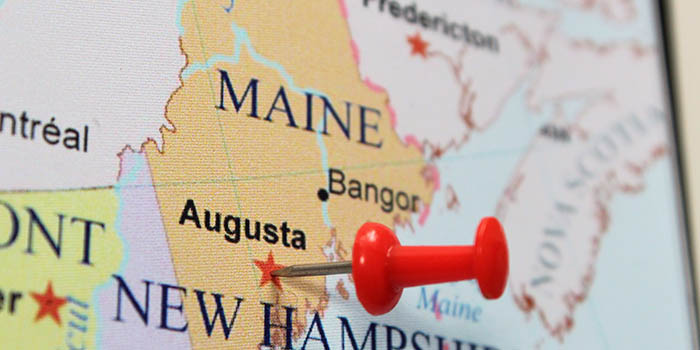Maine legalized sports betting back in May 2022. The activity is yet to be launched, considering that the Maine Gambling Control Unit, the regulator in charge of sports betting, is currently still establishing the legal framework. Now, a recent report by WGME suggests that Maine may introduce sports wagering at some point this summer, but the proposed rules for the activity may be strict, tougher than any other state in fact.
The proposed rules for sports wagering are up for discussion for another month. Interested parties will have until March 3 to submit a written position regarding the proposed regulatory framework. This means that technically, given that there are no delays, Maine can introduce sports wagering this summer. Yet, currently, it is too early to determine, given that the gambling regulator hasn’t even set a proposed day for the launch.
Tough Rules on Betting Advertising
Under the proposed rules for sports betting, the state would collect a 10% tax on the revenue from sports wagering operators. There are expected to be up to 10 retail sportsbooks and up to 4 online sports betting licenses under the proposed sports betting regulation.
Although there will be plenty of action, advertising the activity falls under strict rules, at least given the current proposal. Besides not allowing advertising of wagering on college campuses, the new rules propose limiting sports wagering advertising on TV. The proposed regulatory framework calls to restrict advertising only “during an event and only on the channel that the event is being telecast when wagers on that event are offered by a licensed operator in Maine.”
“For the Native American tribes, it’s very unfair to them, because it leaves them without the promotional ammunition that they need to get the word out.“
Tim Moore, president of the Maine Association of Broadcasters
The tough rules on advertising got the attention of stakeholders with Tim Moore, the Maine Association of Broadcasters’ president, saying that the proposed regulation is unfair to the tribes in the state. He explained that the proposed regulation restricts the possibility of tribal operators to advertise which is unfair.
At the same time, Moore said that as long as the activity is legal and advertising is not misleading, it should be “protected by the First Amendment.” Finally, Moore flagged that the proposed advertising regulations for sports wagering restrict famous people from participating and imposes a pre-approval by the state in a 10-day period, making them the toughest statewide.
Considering that the debate is still ongoing it is likely that the rules will be under further changes. As soon as this happens, Maine would clear another hurdle before launching sports betting.



